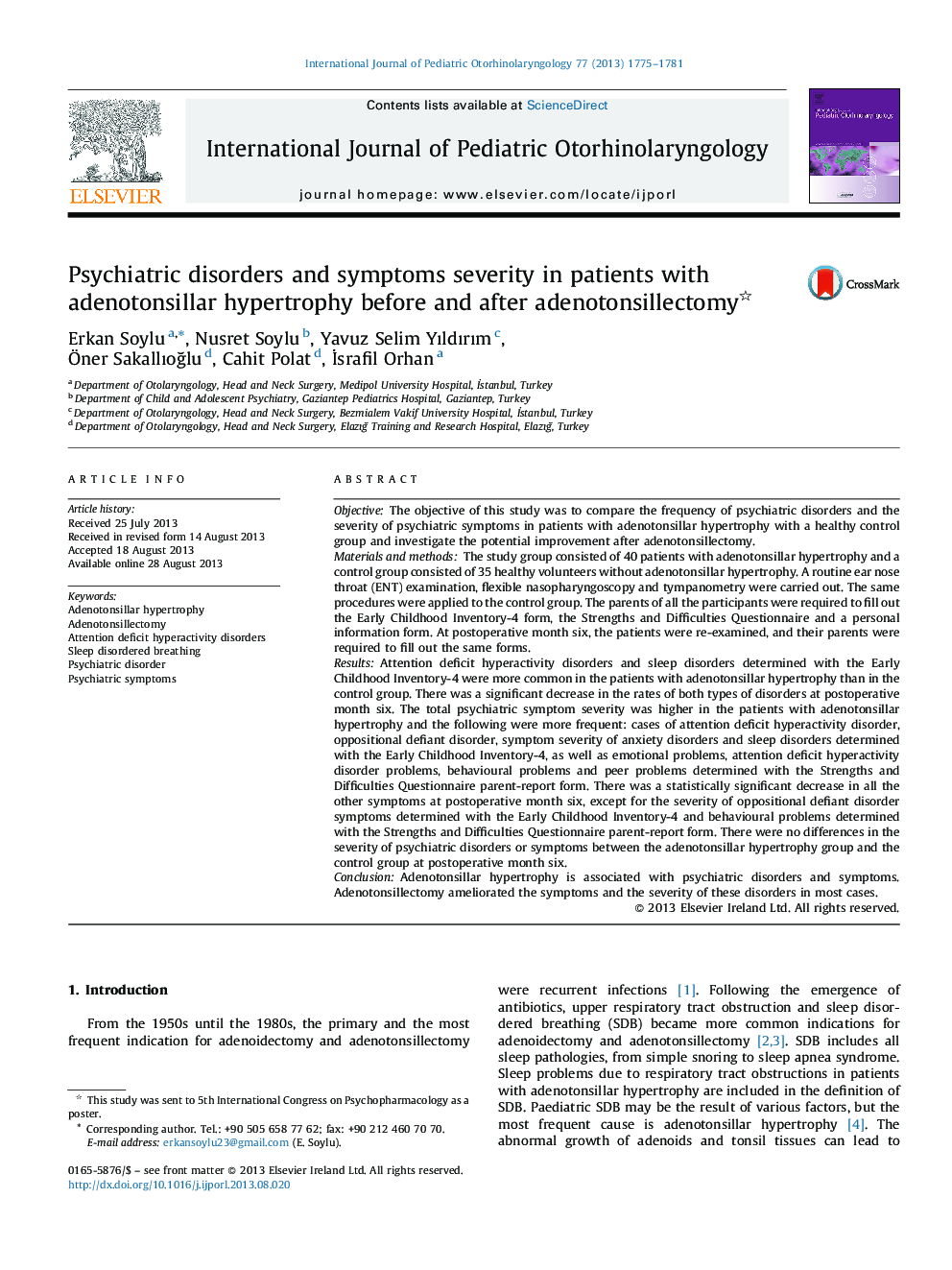| Article ID | Journal | Published Year | Pages | File Type |
|---|---|---|---|---|
| 4112896 | International Journal of Pediatric Otorhinolaryngology | 2013 | 7 Pages |
ObjectiveThe objective of this study was to compare the frequency of psychiatric disorders and the severity of psychiatric symptoms in patients with adenotonsillar hypertrophy with a healthy control group and investigate the potential improvement after adenotonsillectomy.Materials and methodsThe study group consisted of 40 patients with adenotonsillar hypertrophy and a control group consisted of 35 healthy volunteers without adenotonsillar hypertrophy. A routine ear nose throat (ENT) examination, flexible nasopharyngoscopy and tympanometry were carried out. The same procedures were applied to the control group. The parents of all the participants were required to fill out the Early Childhood Inventory-4 form, the Strengths and Difficulties Questionnaire and a personal information form. At postoperative month six, the patients were re-examined, and their parents were required to fill out the same forms.ResultsAttention deficit hyperactivity disorders and sleep disorders determined with the Early Childhood Inventory-4 were more common in the patients with adenotonsillar hypertrophy than in the control group. There was a significant decrease in the rates of both types of disorders at postoperative month six. The total psychiatric symptom severity was higher in the patients with adenotonsillar hypertrophy and the following were more frequent: cases of attention deficit hyperactivity disorder, oppositional defiant disorder, symptom severity of anxiety disorders and sleep disorders determined with the Early Childhood Inventory-4, as well as emotional problems, attention deficit hyperactivity disorder problems, behavioural problems and peer problems determined with the Strengths and Difficulties Questionnaire parent-report form. There was a statistically significant decrease in all the other symptoms at postoperative month six, except for the severity of oppositional defiant disorder symptoms determined with the Early Childhood Inventory-4 and behavioural problems determined with the Strengths and Difficulties Questionnaire parent-report form. There were no differences in the severity of psychiatric disorders or symptoms between the adenotonsillar hypertrophy group and the control group at postoperative month six.ConclusionAdenotonsillar hypertrophy is associated with psychiatric disorders and symptoms. Adenotonsillectomy ameliorated the symptoms and the severity of these disorders in most cases.
